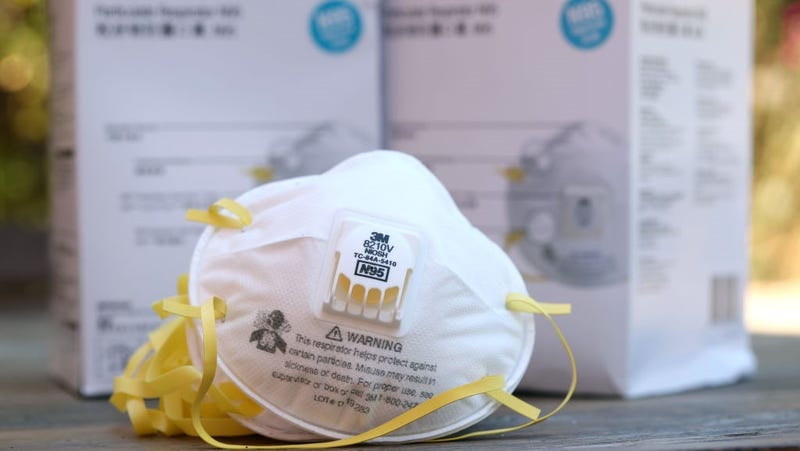
As the omicron variant has caused cases of COVID-19 to rise across the United States, experts are now saying people should make the switch to an N95 or similar high-filtration respirator when in public indoor spaces.
Cloth masks have been very common for people to wear to protect against COVID-19, but omicron has shown to be more transmissible than other variants of the coronavirus, and a better-fitting and higher quality face mask would increase protection.
"Cloth masks are not going to cut it with omicron," Linsey Marr, a researcher at Virginia Tech who studies how viruses transmit in the air, said.
N95, KN95 and KF94 respirators are different from cloth masks since they are all made out of material with an electrostatic charge. That charge "actually pulls these particles in as they're floating around and prevents you from inhaling those particles," according to Dr. Arbaar Karan.
Surgical mask material also has an electrostatic charge but fits the face more loose compared to the tight fit of an N95.
Omicron multiplies 70 times faster inside human respiratory tract tissue than the delta variant, according to preliminary data from scientists at the University of Hong Kong. The study also showed that the omicron variant reaches higher levels in respiratory tract tissue 48 hours after infection, compared to the delta variant.
"That would suggest to me that maybe it reaches higher levels and then we spew out more [virus particles] if we're infected," Marr said.
Experts recommend wearing a mask in any indoor public space, just like with previous stages of the coronavirus. Many major cities like New York and Los Angeles are also mandating people to show proof of vaccination to enter indoor spaces as well.
"I have a lot of confidence in the vaccines, if you're boosted, in protecting against severe outcomes and I have a lot of confidence in an N95 and similar types of respirators," Marr said. "And I think that with those two things, you can still go about a lot of your normal activities."


